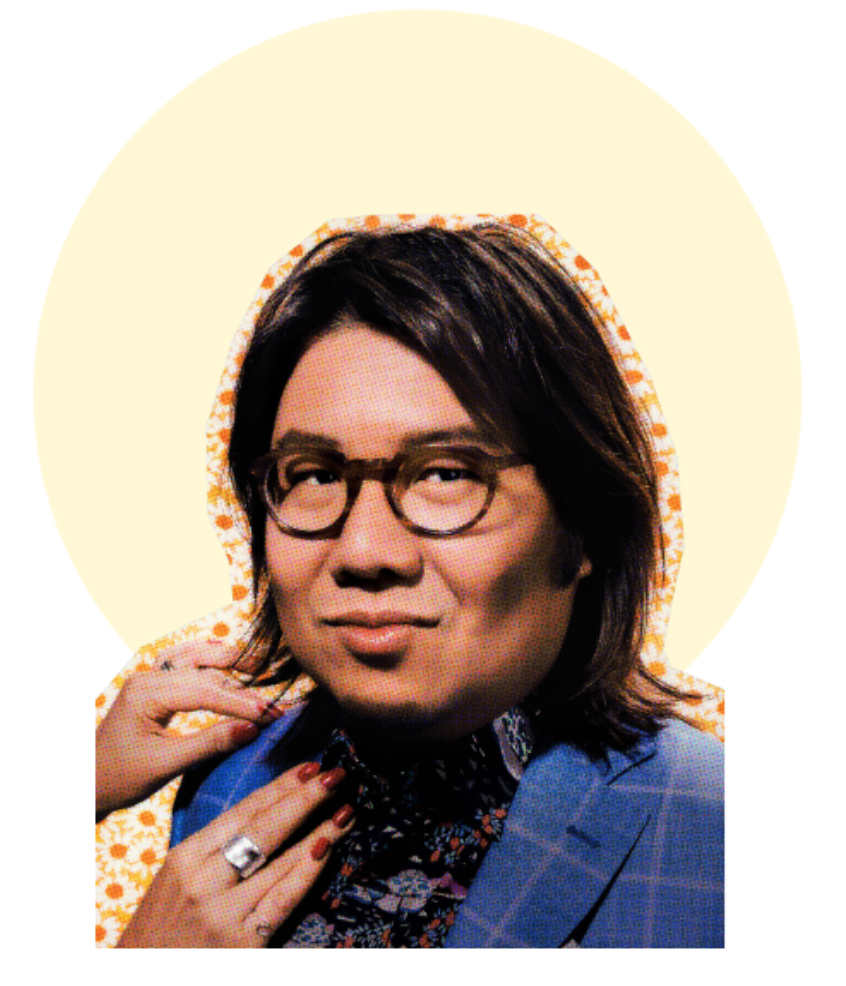By Jacqueline Loh ’22
Staff Writer
“Crazy Rich Asians” was more than just a film; it was a movement. Grossing at $238.5 million worldwide, the film was received with critical acclaim and adoration from audiences, praising the extensive Asian representation. It was the first film in 25 years to have an all-Asian cast, despite rising numbers of Asian immigrants today.
The film, based on the novels of the same name, follows Rachel Chu’s (Constance Wu) whirlwind trip to the glistening island of Singapore with her boyfriend, the “Asian Bachelor,” Nicholas Young (Henry Golding).In Singapore, Rachel not only faces gossip and culture clashes but also a formidable future mother-in-law.
Being Asian-American myself, I was beyond ecstatic to learn that author Kevin Kwan was coming to Scripps. Along with Kwan, Singaporean actress Tan Kheng Hua made an appearance as the interviewer for the evening. Hua played Rachel’s mother, who immigrated to the United States from China alone, fleeing domestic abuse and working tirelessly to build a better future for her daughter. Her story embodies the immigrant struggle many Asian-Americans are familiar with.
The moment the duo walked on stage, Garrison Theater erupted in cheers. I looked behind me and saw the multitudes of Asian-Americans, some with tears in their eyes. It felt surreal, being surrounded by people who looked like me, who all saw this film and read a novel about our heritage. I’ll admit I was emotional at times as well; “Crazy Rich Asians” was the first time I, and many others, have seen Asian actors on screen without being reduced to hurtful stereotypes. Kwan, who was born in Singapore and immigrated to Texas at age eleven, drew upon his own childhood memories for inspiration.At the beginning of his presentation, various photographs of his idyllic youth were presented: images of his grandfather’s home; his grandparents’ wedding; and himself (sporting Cole Haans and a cool smize). Kwan touched on the REPRESENTATIONAnglicized aspects of his youth in Singapore, which was a British Colony for 144 years. The most poignant photo was one of Kwan’s great-aunt, reading a copy of the British magazine Tatler, surrounded by French art-deco furniture with a British doll in the corner.
In addition to the European culture permeating Singapore at the time, Kwan reminisced on how many Singaporeans were fluent in both English and Mandarin. Hints of the magnificently lavish lifestyle of the series are reflected in Kwan’s childhood in Singapore. He recalled how his family had many maids to attend to him in his youth. In the middle of the night, Kwan would yell “I’m thirsty!” prompting a 70-year-old attendent to crawl out of bed in the servant’s quarters, walk to the main home, and bring Kwan an ice cold glass of water, even though the refrigerator was right outside of his bedroom door.
Though these instances of affluence seem bizarre to us, to Kwan and many of Singaporean high society, these are the mundane parts of daily life. When asked what aspect of Singapore influenced his work the most, Kwan recalled memories of Sunday brunches with his Aunt. At these brunches, Kwan was seated with larger-than-life individuals, one including a Thai Princess. Kwan would listen to them “bitch about life,” as he aptly put it, and absorb all the exquisite details about high society. Kwan’s use of intricate detail in the “Crazy Rich Asians” novels is emblematic of his childhood spent accompanying the upper echelons of Singaporean society. With these infusions of real-world details in the novels, the reader feels like a voyeur peering into the world of extravagance.
Kwan touched on other influences for his work, such as bonding with his father as he fell ill. Kwan drew upon his father’s memories and his childhood and wrote a poem about a Singaporean Bible Study group, where women would gossip. This set the foundation for the “Crazy Rich Asians” series. Filming until dawn in the sweltering Singapore humidity, CRAZY RICHthe cast and crew worked endlessly to create an authentic feel to the Young family home. Kwan described the magic of being on set for the film, seeing his words come to life and interacting with the talented individuals embodying his characters. Kwan even hilariously recalled a moment where Henry Golding gave him a free haircut on the beach.
The opening weekend was a rollercoaster for both Kwan and the cast of the film. He recalled how everyone was merely hoping that the film would not come dead last in the box office. Kwan never anticipated the craze as thousands flooded theaters opening day and people bought out entire theaters for viewing events.
Kwan’s work is revolutionary for blending Asian culture into riveting family dramas, centering on themes of power and relationships. His upcoming works include a family drama about a dynasty set in the seedy city of Hong Kong, and a sitcom about an immigrant family moving to Malibu. Though Kwan was secretive about his upcoming work, wearing a coy smile, his few words were enough to invoke a ripple of excitement through the crowd.
Near the end of the event, Hua touched on an important topic: the difference between audience reactions to the film in diasporic Asians, meaning those who immigrated out of Asia, and those in Asia. While the film received rave reviews in America, overseas in Singapore, the audience took some time to warm up. Hua mentioned how in Asia, having a film with an all-Asian cast was nothing new, rather, it was the norm. While Asian characters are consistently kicked aside to the “nerdy sidekick” or “exotic dragon lady” stereotype in American society, the all-Asian cast of “Crazy Rich Asians” was a breath of fresh air. It was a nod to diasporic Asian communities, subtly telling all of us that we are valid, and we have a beautiful and rich (no pun intended) heritage to be proud of.



